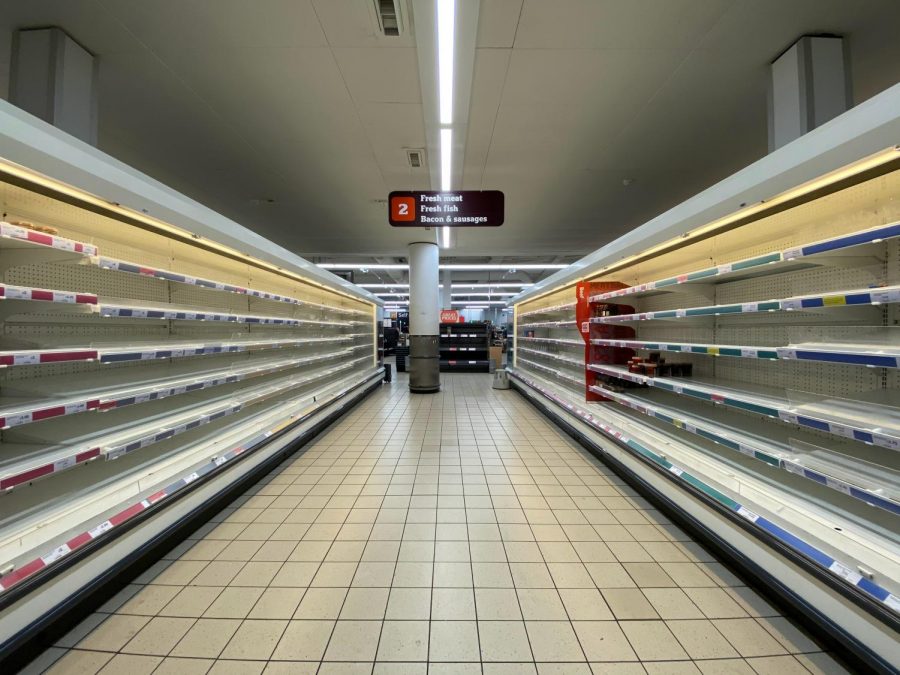The importance of community
We need to buy in moderation
May 26, 2020
Across the country, grocery store shelves are left empty — there are toilet paper shortages, no hand sanitizer available, and no face masks. The New York Times reports that there is currently no lack of food in the country. So why the barren grocery stores?
As the coronavirus continues to spread, people are panic-buying food and other necessities. According to consumer psychologist Paul Marsden, this may be a result of people feeling a lack of control during this pandemic; as a result, they do whatever they can to make themselves feel as though they have regained some sense of control. Panic-buying often happens before natural disasters, but since this is a global pandemic that has intensified over the last few months, there are more mass purchases of food and masks than ever before.
This is not only unnecessary, but ultimately, damaging to the community. It takes food away from grocery stores and those in need. According to The New York times, the food industry is capable of handling the mass demand for food during quarantine conditions, but stockpiling is putting a strain on stores.
Additionally, since the U.S. was simply unprepared for a health crisis of this scale, there has been a shortage of surgical masks for front line responders. Protecting healthcare workers from the virus and making sure they have masks is an essential part of slowing down the spread of the virus so that hospitals are properly equipped to handle sick patients.
There have already been efforts by individuals to help fight the problems caused by the pandemic. Many members of the community have started or participated in nonprofit organizations like Feeding America, which is helping make sure that food banks across the country can feed those in need, Doctors Without Borders, which is sending help to countries impacted the most by COVID-19 and the CDC Foundation, which is helping local public health agencies detect and respond to COVID-19 cases.
Mass hysteria and stockpiling are doing nothing but hurting the community. We cannot be victim to the same panic-buying and hysteria that have been constant symptoms of previous pandemics, such as whooping cough, influenza and measles.
Although staring at the empty grocery store shelves can be alarming, it is important to remind yourself that this pandemic — and its impacts — will not last forever. Keep in mind the other members of your community, and before purchasing your 20th roll of toilet paper, consider those who may not have the financial means to buy in bulk, or at all. When buying masks, consider the millions of front line responders struggling to handle the effects of these unprecedented times.
Along with reducing the amount of items you purchase at stores, there are other ways you can help out your community — you can donate at your local food bank, offer assistance to immunocompromised individuals by keeping them away from public spaces, and most importantly, continuing to practice social distancing.
Although it can be tempting to stockpile, staying calm and buying items in moderation are the most helpful actions that we can take while sheltering in place. This is a team effort.


















